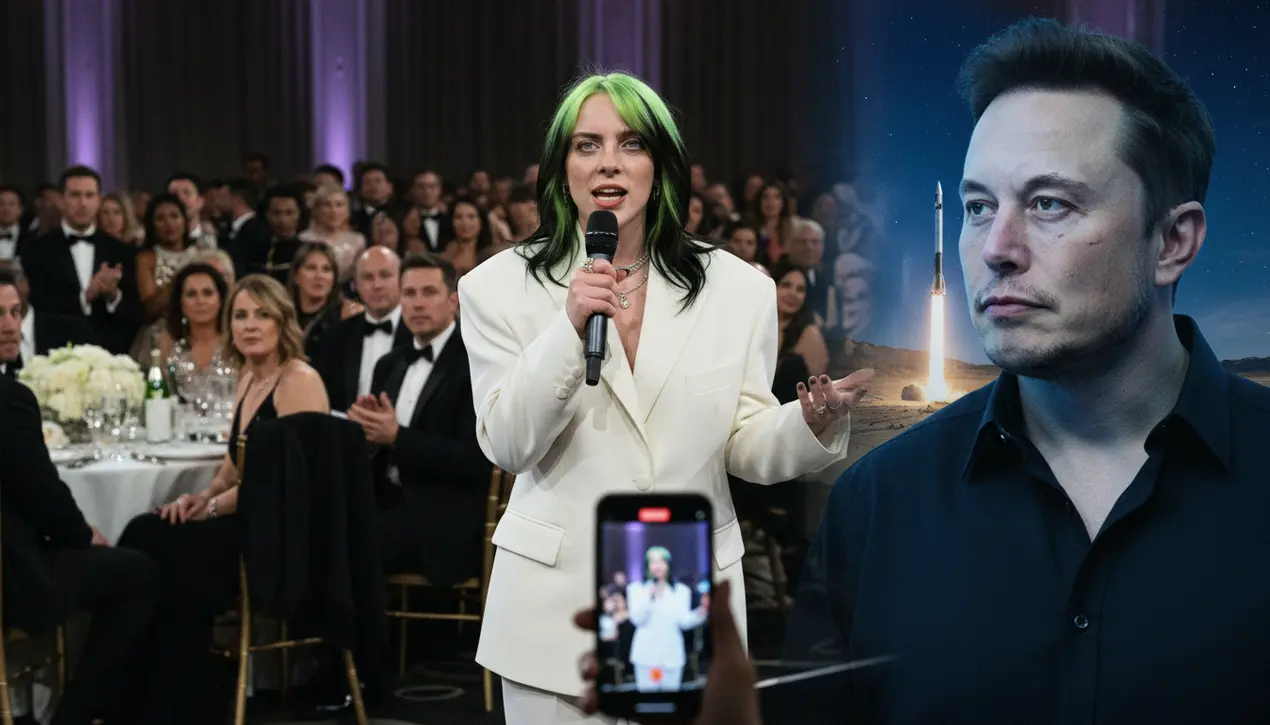
EntertainmentcelebritiesPhilanthropy
Billie Eilish Criticizes Elon Musk Over Wealth Hoarding.
BR
Brian Miller
2 hours ago7 min read
In a move that harmonizes perfectly with her generation's growing discontent with wealth inequality, Billie Eilish recently used her platform at the prestigious WSJ Innovator Awards not to celebrate her own artistic breakthroughs, but to issue a stark, melodic rebuke to the world's billionaires, a chorus where Elon Musk's name was the unspoken bassline. The singer, whose own work often explores themes of anxiety and existential dread in the modern world, called upon the ultra-wealthy to radically redistribute their fortunes to those in genuine need, a powerful verse dropped into an evening otherwise dedicated to lauding capitalistic success.This wasn't a vague, off-the-cuff remark; it was a deliberate solo performed on a stage built by the very establishment she was critiquing, lending her message an undeniable weight and a specific target audience. The timing, as it often is in the most poignant protest songs, was everything.In the mere two weeks following her declaration, Elon Musk, the archetype of the modern tech titan, saw his net worth continue its stratospheric climb, inching him ever closer to a previously unimaginable milestone: becoming the world's first trillionaire. This juxtaposition is the crux of the entire piece—the artist's plea for economic harmony clashing violently with the relentless crescendo of one man's fortune.To understand the depth of Eilish's critique, one must listen to the background track of the past few years, a period marked by a global pandemic that widened the chasm between the rich and the poor, by climate crises demanding colossal investment, and by a palpable, generational shift in how wealth is perceived. Eilish, a defining voice for Gen Z, is singing a tune that resonates with millions who view the hoarding of wealth not as a testament to genius, but as a failure of collective responsibility.Her stance echoes the lyrical protests of artists from previous eras—think of the folk-driven social commentaries of Bob Dylan or the punk-rock antagonism of The Clash—yet it's updated for the digital age, where a billionaire's net worth is tracked in real-time like a Spotify chart. Musk himself represents a complex figure in this symphony; he is both the visionary composer promising a multi-planetary future and the conductor of a fortune so vast it seems to exist in a different acoustic realm from everyday life.Experts in economic ethics note that the concentration of such wealth in a single individual presents profound philosophical and practical challenges, questioning the very structure of our global society. What are the consequences of a single person wielding financial power equivalent to the GDP of entire nations? It creates a dissonance that is hard to ignore, a track that keeps skipping.Eilish’s intervention, therefore, is more than celebrity gossip; it’s a key cultural moment, a bridge between pop culture and high finance. It forces a conversation about the moral responsibility that accompanies extreme wealth, a conversation that is likely to only grow louder, building to a climax as the gap between the billionaire class and everyone else continues to widen, a song on repeat that an increasing number of people are no longer willing to hear.
#editorial picks news
#Billie Eilish
#Elon Musk
#wealth inequality
#philanthropy
#billionaires
#global crises
#WSJ Innovator Awards
Stay Informed. Act Smarter.
Get weekly highlights, major headlines, and expert insights — then put your knowledge to work in our live prediction markets.
Related News
Comments
Loading comments...
© 2025 Outpoll Service LTD. All rights reserved.